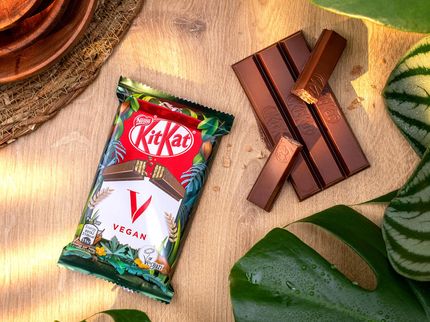Chocolate trends: fair, sustainable, vegan and quality over quantity
Advertisement
The COVID-19 crisis has increased the focus on personal health for many consumers. In a Mintel study, just under a quarter of respondents in Germany said that healthy eating had become more important to them since the outbreak of the pandemic. This means that there is supposedly little room for conventional chocolate on the menu. Reduced sugar, vegan and sustainable: these are the attributes that many chocolate manufacturers are relying on. But these chocolate variations are unpopular with many consumers: more than three out of five respondents would rather eat less conventional chocolate than resort to the reduced-sugar alternative. Around a third would stop buying their favorite product as soon as the manufacturer reduced the sugar content in the recipe.

Photo by Tamas Pap on Unsplash
Young consumers think vegan alternatives are healthier
Vegan diets are becoming increasingly popular in Germany, including vegan chocolate. This is particularly popular with young consumers in Germany, for whom the vegan version is often a real alternative to conventional chocolate. More than one in three of 16-24 year-olds consider vegan chocolate to be healthier than its classic cow's milk counterparts. Many companies have already recognized the market potential. So has the Swiss chocolate manufacturer Lindt, which now offers its famous Easter bunnies in a vegan version. To set themselves apart from the competition, brands should not just fixate on the attribute "plant-based," but think further ahead. For example, right now it is advisable to perfect taste and texture and offer a greater variety of flavors and formats.
Chocolate? Preferably ethical and sustainable!
In an international comparison, sustainability is very important to consumers in Germany. In the meantime, one third of those surveyed say they mostly make ethical and sustainable choices when shopping. The special thing about chocolate: 68 percent of respondents say they even expect ethical behavior in chocolate production. For example, when companies are convicted of unethical production practices, this often leads consumers to switch brands. Companies should therefore ensure ethical production conditions as a matter of principle. This ethical attitude can and should then also be clearly communicated. The Dutch brand Tony's Chocolonely is an example of how this can work. In order to set itself apart from the competition, the company actively provides information about exploitation and forced labor in cocoa farming on its product packaging and at events, and is itself committed to ethical working conditions.
Sustainable packaging materials are also an important issue for consumers in Germany. Many of them also want environmentally friendly packaging for chocolate. Just under two out of five consumers feel that a higher price for chocolate is justified if it is packaged in recyclable materials. Many companies are already responding to this. One such company is the Unitopia brand, which states on its packaging that it does not use any plastic at all.
Smaller quantities with higher quality in demand
Consumers often see chocolate as a mood booster. This has had a supportive effect on sales volumes and revenues in the industry in the pandemic years of 2020 and 2021. On the other hand, we expect that with the pandemic, the previously mentioned effect of increased health awareness will continue to spread and strengthen. Smaller format sizes will have an impact on sales volumes here. In addition, continuing inflation is likely to have an impact on sales in 2022. However, the enjoyment of high quality chocolate will remain in the foreground.
Note: This article has been translated using a computer system without human intervention. LUMITOS offers these automatic translations to present a wider range of current news. Since this article has been translated with automatic translation, it is possible that it contains errors in vocabulary, syntax or grammar. The original article in German can be found here.































































